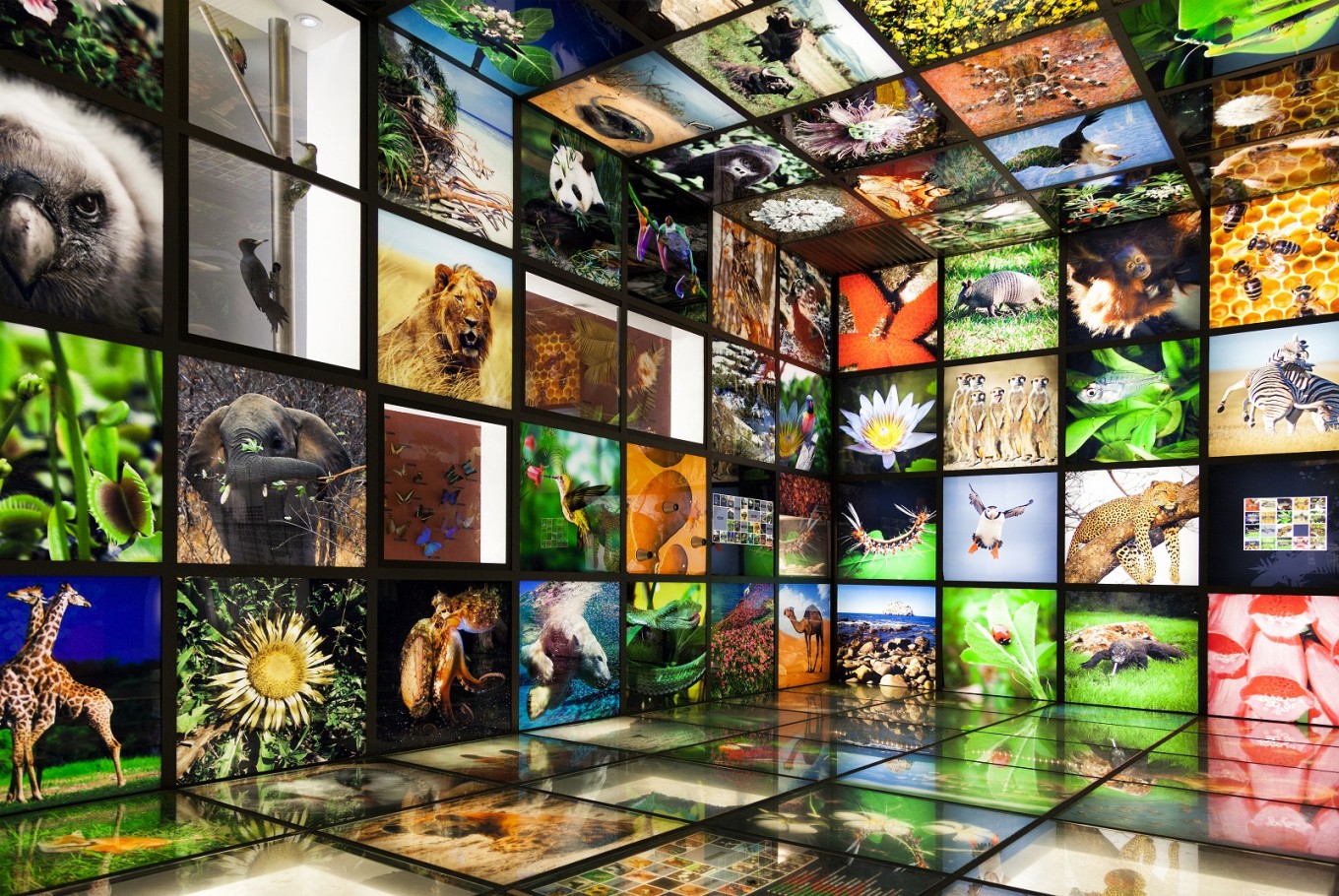The sorry state of Earth's species, in numbers
The Intergovernmental Science-Policy Platform on Biodiversity and Ecosystem Services (IPBES) prepares to unveil a thorough diagnosis of the health of Earth's plant and animal species.
Change text size
Gift Premium Articles
to Anyone
 Inside the 'Torre Madariaga' multimedia biodiversity showroom, with pictures of flowers and animals in Urdaibai, Spain (Shutterstock/luisrsphoto)
Inside the 'Torre Madariaga' multimedia biodiversity showroom, with pictures of flowers and animals in Urdaibai, Spain (Shutterstock/luisrsphoto)
A
s the Intergovernmental Science-Policy Platform on Biodiversity and Ecosystem Services (IPBES) prepares to unveil a thorough diagnosis of the health of Earth's plant and animal species, this is what we already know:
-- Two species of vertebrate, animals with a backbone, have gone extinct every year, on average, for the past century.
-- Scientists say Earth is undergoing a "mass extinction event", the first since the dinosaurs disappeared some 65 million years ago, and only the sixth in the last half-a-billion years.
-- About 41 percent of amphibian species and more than a quarter of mammals are threatened with extinction.
-- About half of coral reefs have been lost in the last 30 years.
-- The global populations of 3,706 monitored vertebrate species -- fish, birds, mammals, amphibians, and reptiles -- declined by nearly 60 percent from 1970 to 2012.
-- 25,821 species of 91,523 assessed for the 2017 "Red List" update were classified as "threatened".
-- Of these, 5,583 were "critically" endangered, 8,455 "endangered", and 11,783 "vulnerable".
-- African elephant numbers dropped to 415,000 in 2016, down about 111,000 over 10 years.
-- There are an estimated 8.7 million plant and animal species on our planet. This means about 86 percent of land species and 91 percent of sea species remain undiscovered.
-- Of the ones we do know, 1,204 mammal, 1,469 bird, 1,215 reptile, 2,100 amphibian, and 2,386 fish species are considered threatened.
-- Also threatened are 1,414 insect, 2,187 mollusc, 732 crustacean, 237 coral, 12,505 plant, 33 mushroom, and six brown algae species.
-- Annual economic losses as a result of deforestation and forest degradation alone may be as high as $4.5 trillion (3.6 trillion euros).
-- A conference of the UN's Convention on Biological Diversity (CBD) agreed in Nagoya, Japan in 2010 on a 20-point plan to turn back biodiversity loss by 2020.
-- The plan's so-called "Aichi Biodiversity Targets" include halving the rate of habitat loss, expanding water and land areas under conservation, preventing the extinction of species on the threatened list, and restoring at least 15 percent of degraded ecosystems.
Read also: New trees a second chance for peatland farmers
SOURCES: WWF Living Planet Report, IUCN Red List, PLoS Biology, Proceedings of the National Academy of Sciences, CBD, UNEP.









